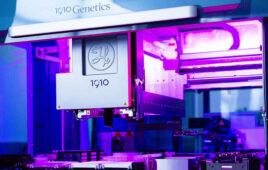Researchers at the Virginia Commonwealth University Massey Cancer Center and the VCU Institute of Molecular Medicine have published findings that implicate a new chemoprevention gene therapy (CGT) for preventing and treating pancreatic cancer, one of the most lethal and treatment-resistant forms of cancer.
In the July issue of Molecular Cancer Therapeutics, the researchers showed that combining a dietary agent with a gene-delivered cytokine effectively eliminates human pancreatic cancer cells in mice displaying sensitivity to these highly aggressive and lethal cancer cells.
Cytokines are a category of proteins that are secreted into the circulation and can affect cancer cells at distant sites in the body, including metatases. The cytokine used in this study was melanoma differentiation associated gene-7/interleukin-24, known as mda-7/IL-24.
The dietary agent, perillyl alcohol (POH), was combined with mda-7/IL-24, which is already used in other cancer treatments. POH is found in a variety of plants, including citrus plants, and has been well-tolerated by patients who have received it in clinical studies.
The results indicated that the CGT approach not only prevented pancreatic cancer growth and progression, but it also effectively killed established tumors, thereby displaying profound chemopreventive and therapeutic activity.
Release date: August 5, 2008
Source: Virginia Commonweath University
Filed Under: Genomics/Proteomics




